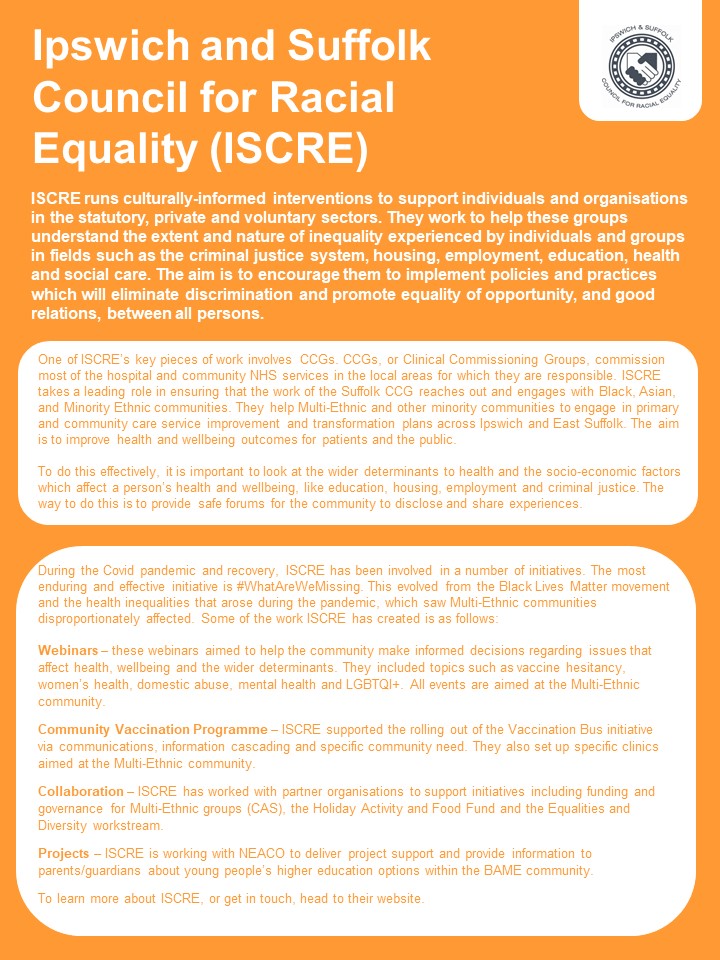ISCRE runs culturally-informed interventions to support individuals and organisations in the statutory, private and voluntary sectors. They work to help these groups understand the extent and nature of inequality experienced by individuals and groups in fields such as the criminal justice system, housing, employment, education, health and social care.
The aim is to encourage them to implement policies and practices which will eliminate discrimination and promote equality of opportunity, and good relations, between all persons.
Their work is vital. To read what they’ve been up to, either see the image below, or scroll to read the full-text version.

To submit your own case studies, email [email protected]. We’d love to help spread the word about your organisation.
Full text version:
One of ISCRE’s key pieces of work involves CCGs. CCGs, or Clinical Commissioning Groups, commission most of the hospital and community NHS services in the local areas for which they are responsible. ISCRE takes a leading role in ensuring that the work of the Suffolk CCG reaches out and engages with Black, Asian, and Minority Ethnic communities. They help Multi-Ethnic and other minority communities to engage in primary and community care service improvement and transformation plans across Ipswich and East Suffolk. The aim is to improve health and wellbeing outcomes for patients and the public.
To do this effectively, it is important to look at the wider determinants to health and the socio-economic factors which affect a person’s health and wellbeing, like education, housing, employment and criminal justice. The way to do this is to provide safe forums for the community to disclose and share experiences.
During the Covid pandemic and recovery, ISCRE has been involved in a number of initiatives. The most enduring and effective initiative is #WhatAreWeMissing. This evolved from the Black Lives Matter movement and the health inequalities that arose during the pandemic, which saw Multi-Ethnic communities disproportionately affected. Some of the work ISCRE has created is as follows:
Webinars – these webinars aimed to help the community make informed decisions regarding issues that affect health, wellbeing and the wider determinants. They included topics such as vaccine hesitancy, women’s health, domestic abuse, mental health and LGBTQI+. All events are aimed at the Multi-Ethnic community.
Community Vaccination Programme – ISCRE supported the rolling out of the Vaccination Bus initiative via communications, information cascading and specific community need. They also set up specific clinics aimed at the Multi-Ethnic community.
Collaboration – ISCRE has worked with partner organisations to support initiatives including funding and governance for Multi-Ethnic groups (CAS), the Holiday Activity and Food Fund and the Equalities and Diversity workstream.
Projects – ISCRE is working with NEACO to deliver project support and provide information to parents/guardians about young people’s higher education options within the BAME community.
To learn more about ISCRE, or get in touch, head to their website.